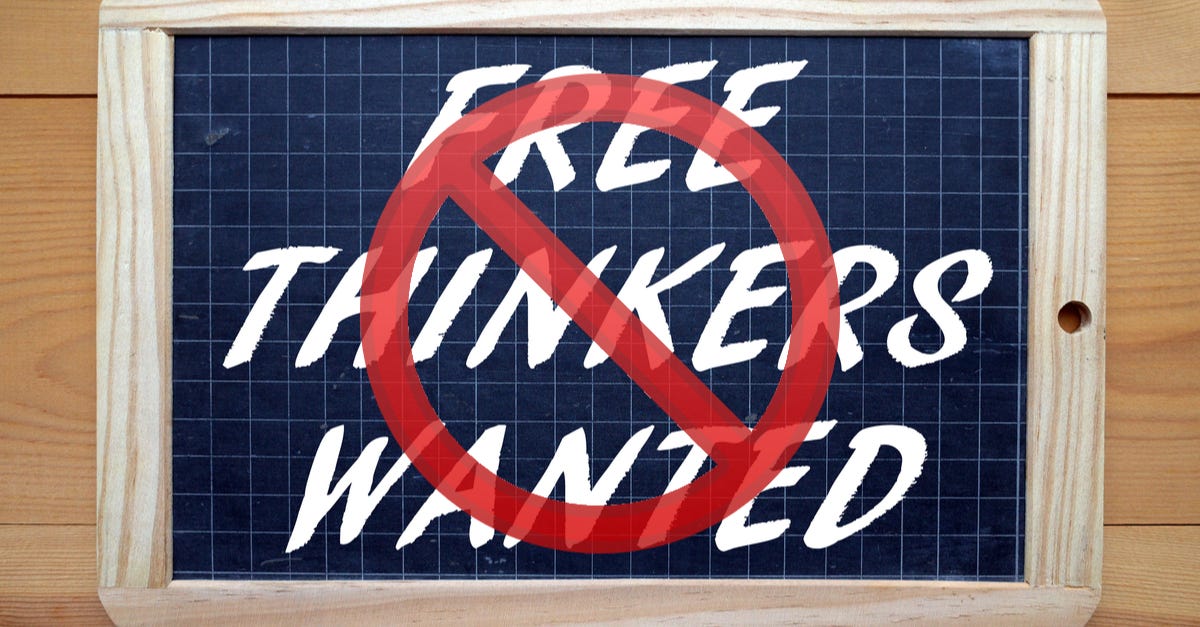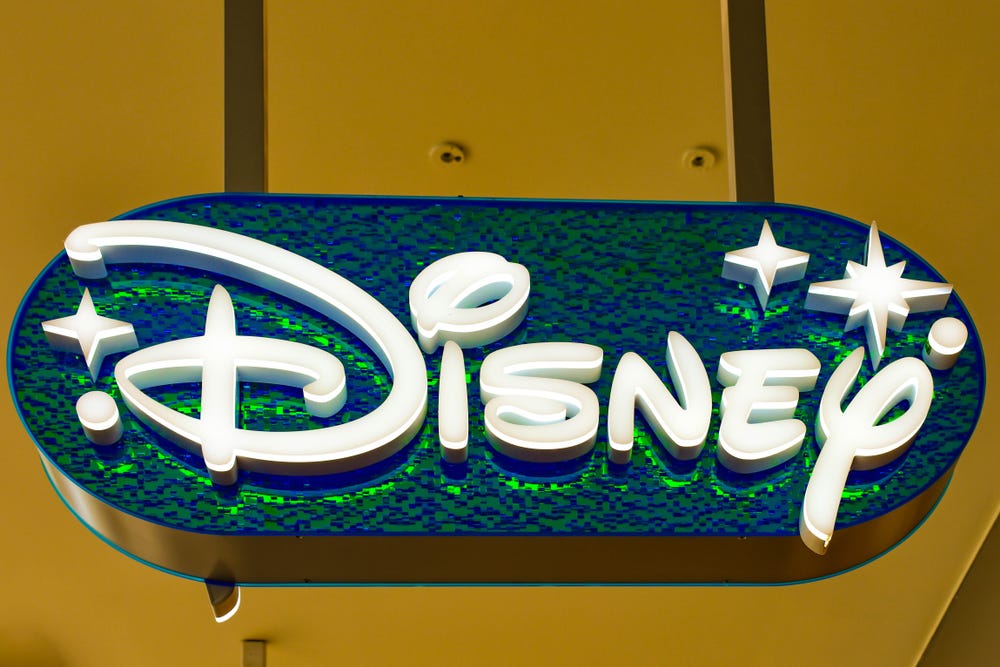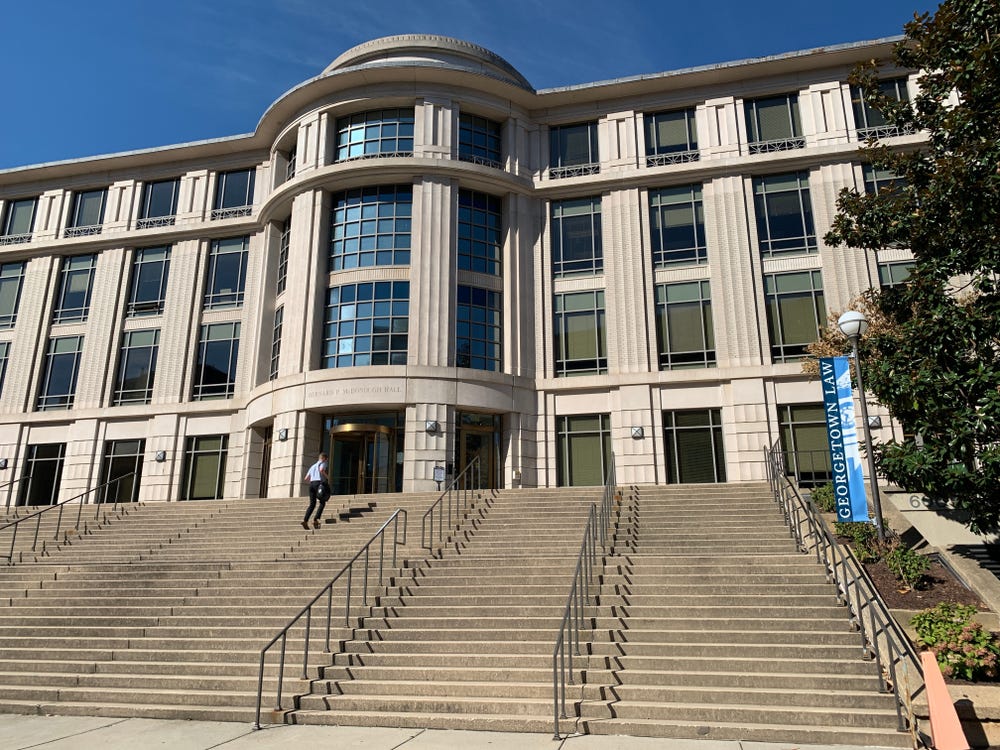E-Pluribus | March 31, 2022
Does healthcare have room for free thinkers, what's up with Disney, and Georgetown Law continues to de-emphasize... law.
A round up of the latest and best writing and musings on the rise of illiberalism in the public discourse:
John D. Sailer: No Free Thinkers Need Apply
The influence of politics on healthcare is not a new phenomenon, but John Sailer at City Journal has been regularly documenting the influence of wokeness on educational and medical institutions. While the changes have been in the works for years, the pandemic has brought some of these issues to the forefront of the public discourse that might have received less attention otherwise.
How do these requirements manifest? The University of North Carolina’s Gillings School of Public Health recently released an updated Inclusive Excellence Action Plan—a laundry list of diversity, equity, and inclusion measures. The plan cites the Council on Education for Public Health requirements, and mandates that “racism, social justice and health equity are integrated throughout and across curricula,” and that diversity, equity, and inclusion efforts be a condition for faculty promotion and tenure.
Across the country, public-health schools have adopted virtually indistinguishable plans. Last year, the Johns Hopkins Bloomberg School of Public Health—which ranks first in the country—released its Inclusion, Diversity, Anti-Racism, and Equity (IDARE) Action Plan. Measures include required land acknowledgments at school events (statements noting that the events are located on former Native American land), a new core competency “addressing the importance of IDARE in public health” required for all curricula, and new course evaluation questions on “diversity, inclusivity, anti-racism, and equity in the classroom climate and curriculum.”
[ . . . ]
In October 2021, the Council on Linkages Between Academia and Public Health Practice revised its Core Competencies for Public Health Professionals, “a consensus set of knowledge and skills for the broad practice of public health.”
[ . . . ]
The update created a new category of “health equity skills.” Now, a competent public-health professional “applies principles of ethics, diversity, equity, inclusion, and justice,” “collaborates with the community to reduce systemic and structural barriers that perpetuate health inequities,” and “engages in advocacy for health equity and social and environmental justice,” to name just a few. Given the political connotations of terms like “inclusion,” “social justice,” and “health equity,” it’s no wonder that public-health officials embrace race-conscious policies by default.
Read the whole thing.
‘Ethan L. Clay’: Disney’s Institutional Capture
Writing under a pseudonym at Quillette, a Disney “Imagineer” gives an insider’s perspective on what is going on with the entertainment giant’s response to recent legislative developments in Florida. The author says that Disney quickly caved to internal pressures, a sign that, as an institution, Disney is increasingly being co-opted by a progressive constituency.
In less than two weeks’ time, the company had moved from principled neutrality to open advocacy. This new messaging, intended to mollify the company’s internal critics, accelerated Disney’s meltdown instead. “Brave Space Conversations” are now held at regular intervals—an absurd euphemism for struggle sessions designed to allow activists to vent their frustrations while drowning out dissenting voices. All regularly scheduled company meetings are cancelled to make room for these meetings, and park leadership opens the floor to hours-long performative recitations of grievances by hand-picked cast members. They conclude with grandiose statements about inclusion and fairness and understanding pain and listening, but not a single nonconforming viewpoint is heard, either from those who support the bill or those who think Disney has no business getting involved in this dispute in the first place.
“At Disney,” the company’s website promises, “inclusion is for everyone. We reimagine tomorrow as our way of amplifying underrepresented voices and untold stories as well as championing the importance of accurate representation in media and entertainment.” But, as usual, “inclusion” only protects those who think like DEI activists. “Fairness” only applies to historically oppressed people groups. The only pain worth understanding is that felt by the subsection of LGBT cast members who believe that sex education ought to begin in kindergarten. Listening and seeing is restricted to the approved narratives, and even excludes those LGBT cast members who support the Florida legislation. I know many of them personally, and nearly without exception, they are all parents.
It’s incredible that a company—particularly a company whose brand is family-friendly content—would oppose the perfectly reasonable view that sexual topics are not appropriate for six-year-olds in a public school setting. The bill puts the onus back on parents, rather than public schools, to decide how and if these conversations happen. That perspective can be debated, but it is not wrong a priori, and a very large number of Florida voters agree with it. But Disney isn’t interested in allowing a genuine debate or conversation to occur, it simply wants to satisfy the DEI activists so they stop making trouble and bad headlines for the company. The result is that they parrot the party line, offer craven apologies, and ignore and silence opposition.
Read it all here.
Aaron Sibarium: ‘Scary for the Legal Profession’: Georgetown Upends Traditional Law School Lessons in New Woke Curriculum
The Washington Free Beacon’s Aaron Sibarium recently wrote a piece for Bari Weiss’s Common Sense (we covered it here) about worrying trends in the legal profession and educational system. Sibarium’s latest for the Free Beacon looks at how these trends are playing out at Georgetown Law, a school that often serves as a bellwether for other law schools rethinking their own curriculum policies and requirements.
Students in [Georgetown Law] professor Madhavi Sunder's mandatory first-year course learn on day one that the history of American property law is "the history of dispossession and appropriation," according to videos of the course reviewed by the Washington Free Beacon. Lecture slides from the first month of coursework trace the "birth" of modern property law not to English courts, but to "Native dispossession and the enslavement of African Americans." "Possession," one slide asserts, "is a legal term of art for a settler capitalist society."
[ . . . ]
Sunder wasn't just putting her own spin on a stereotypically dry class; she was also laying the groundwork for a sweeping transformation of the law school curriculum.
In September 2021, Georgetown Law's faculty voted to adopt a new "institutional learning outcome": All students will be expected to graduate with the "ability to think critically about the law's claim to neutrality and its differential effects on subordinated groups, including those identified by race, gender, indigeneity, and class," according to a faculty motion reviewed by the Free Beacon.
These themes, the motion states, are "foundational knowledge" that "should be advanced throughout the entire first-year curriculum." To that end, the motion directs a number of administrators—including the "Associate Dean for Equity and Inclusion"—to "identify first-year professors" who already "advance the new institutional learning outcome" in their courses. Sunder is one of those professors: She told her students that her course would "satisfy" the new requirement, as would "many other property classes" at Georgetown.
Read it all.
Around Twitter
Peter Boghossian, Jill Filipovic and Alexandra DeSanctis Marr may disagree on any number of issues, but they all understand the value and necessity of talking to those with whom we differ:
As part of our effort to keep our readers on the cutting edge of woke vocabulary, we give you “pansexual” via Disney, Christopher Rufo and Colin Wright:
Finally, via Greg Lukianoff of the Foundation for Individual Rights in Education, a reading of a speech on liberty from last century’s Judge Learned Hand:










